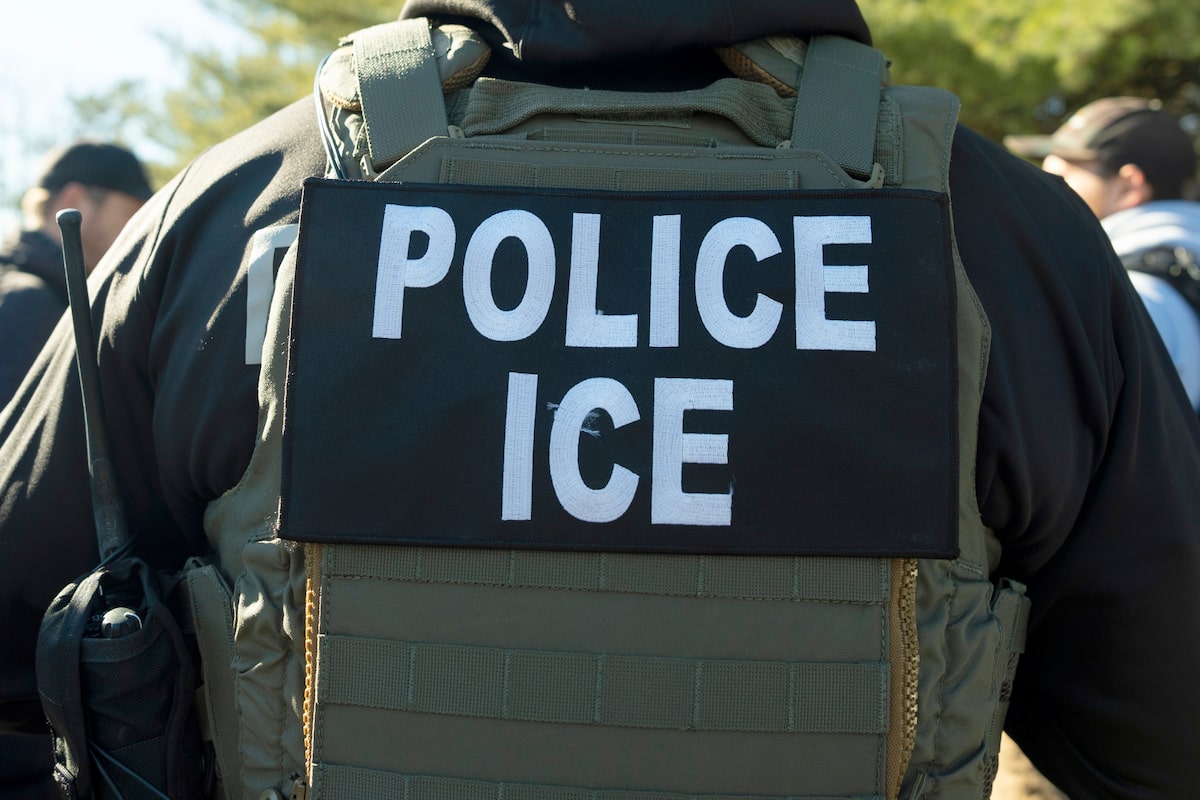Canadian Johnny Noviello, 49, who died in U.S. Immigration and Customs Enforcement custody is the 10th death in ICE custody this year.Alex Brandon/The Associated Press
Several dozen Canadians are currently in immigration-related detention in the United States, Global Affairs Canada confirmed Friday.
This week, U.S. Immigration and Customs Enforcement said a Canadian man, Johnny Noviello, 49, had died in its custody in Florida. It is the 10th death in ICE custody this year.
Mr. Noviello was a permanent resident of the United States and lived there for more than 30 years. In 2023, he was convicted of several drug-related charges. ICE arrested him on May 15 and charged him with removability because of his drug convictions.
He was detained at a Federal Bureau of Prisons detention centre in Miami pending deportation proceedings and was found unresponsive on June 23. ICE said he received medical attention but was pronounced dead less than an hour later. The agency said the cause of death is under investigation.
Global Affairs Canada said consular officials provide assistance to Canadian citizens who have been detained. On Thursday, Foreign Affairs Minister Anita Anand wrote on social media that Canadian consular officials were “urgently seeking more information from U.S. officials” about Mr. Noviello’s death.
U.S. immigrants fear Trump’s tightening dragnet
Detention Watch Network, a non-governmental organization that seeks to abolish immigration detention in the U.S., said Mr. Noviello’s death marks a “grim milestone” in a sweeping roundup of non-citizens by U.S. authorities under President Donald Trump.
“There are currently more than 59,000 people in Immigration and Customs Enforcement (ICE) detention, an all-time high. Trump’s cruel detention expansion is exacerbating inhumane conditions and expanding human rights abuses, with increasing reports of death, medical neglect, [and] overcrowding,” the NGO said in a statement Friday.
The group said 10 people have died in custody since January, when Mr. Trump’s second presidency began. ICE’s own statistics show that the majority of the fatalities have occurred in Florida and neighbouring Georgia.
ICE said in its statement that it is committed to ensuring those in its custody are in “safe, secure and humane environments” and that medical care is provided. “At no time during detention is a detained illegal alien denied emergent care.”
While it is still not known how Mr. Noviello died, he had epilepsy and relied on medication.
An agreement signed earlier this year by ICE and the Federal Bureau of Prisons lays out the procedures for the confinement of male immigration detainees at several U.S. prisons, including those held in as many as four units within the detention centre in Miami, where Mr. Noviello died.
The agreement, which was obtained by the Miami Herald, states that in the event of a medical or mental health emergency, the Bureau of Prisons would “immediately provide necessary emergency medical treatment, including initial on-site stabilization and off-site transport to an appropriate emergent care facility, as needed or via ambulance as clinically indicated.”
The agreement also states that in the event of a death in custody, the deceased detainee should be turned over to the coroner as soon as possible. “In case of a questionable death, the Special Investigative Agent (SIA) will work in cooperation with ICE on any on-going investigation.”
The warden or the ICE district director, the agreement states, can order an autopsy after the death of any immigration detainee.
Mr. Noviello is not the only Canadian to have died in ICE custody. In the summer of 2020, a 72-year-old Canadian died in hospital after he was held for nearly three months in a Virginia detention centre that had a major COVID-19 outbreak. Hundreds of detainees became infected with the coronavirus at the privately run facility operated on behalf of ICE, amid complaints of overcrowding and poor sanitation.
James Hill, a former physician in Louisiana, was waiting to be deported after serving a 12-year sentence for writing OxyContin prescriptions without seeing patients. He had told relatives at the time that he had to sleep in a dorm with more than 80 men, with bunks crowded so closely together that sweat from other detainees dripped on him. He also said his lungs were irritated after guards used pepper spray to control detainees.
In a May letter to federal officials, the American Civil Liberties Union and several other rights organizations flagged “troubling systemic failures” in providing immigration detainees with access to legal support at FDC Miami.
“FDC-Miami has severely, and unlawfully, limited detained individuals’ access to counsel by restricting access to telephone calls with attorneys,” the letter says.
The federal prisons agency has agreed to place ICE detainees at eight facilities across the country, a spokesperson for the Bureau of Prisons said in a statement to the Globe.
The spokesperson said the bureau could not comment on the number of detainees housed at any particular facility for “privacy, safety, and security reasons.”
